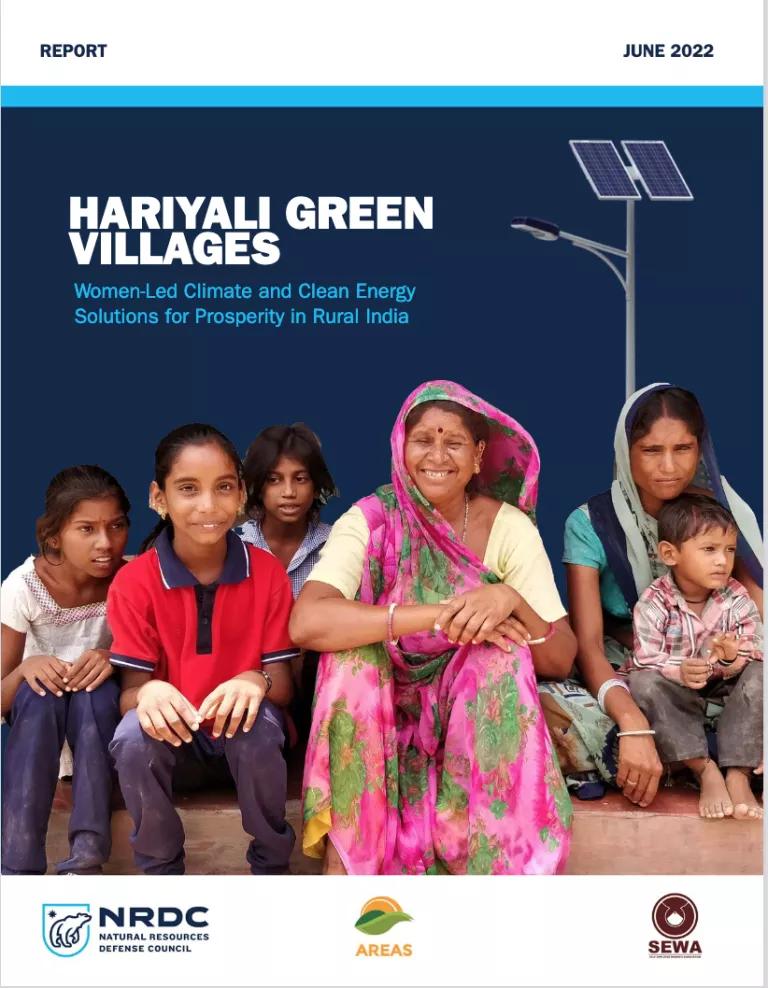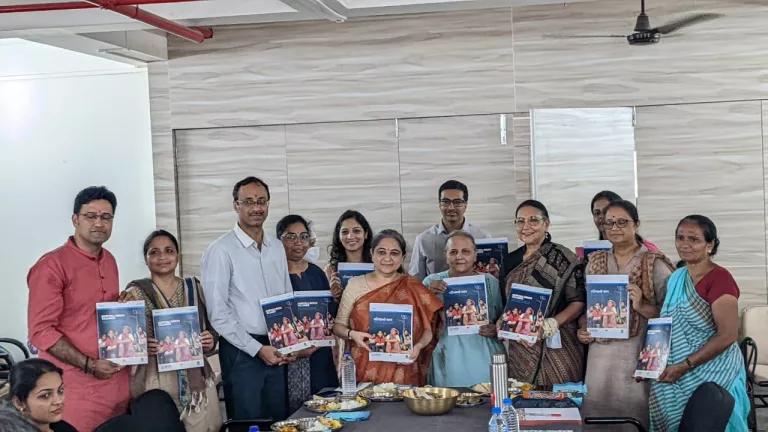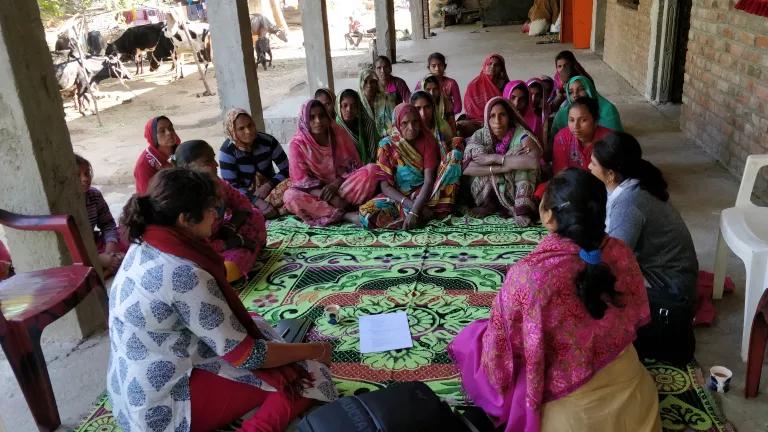Hariyali Green Villages: Women Lead Climate Solutions
NRDC, Self-Employed Women’s Association (SEWA), and partners have implemented the transformative Hariyali Green Villages initiative in 15 villages in Gujarat and Rajasthan over the past year.
Co-Authored with Akanksha Golchha and Charu Lata.
NRDC, Self-Employed Women’s Association (SEWA), and partners have implemented the transformative Hariyali Green Villages initiative in 15 villages in Gujarat and Rajasthan over the past year. Navigating through the COVID-19 pandemic and natural calamities like cyclone Tauktae, the implementation has already benefitted over 300 families. A new report, “Hariyali Green Villages: Women-Led Climate and Clean Energy Solutions for Prosperity in Rural India,” with a preliminary assessment of the Hariyali Green Villages, was released today at a clean energy workshop in Anand district in Gujarat.

The Ministry of New and Renewable Energy (MNRE) Additional Secretary Vandana Kumar, who released the report at the workshop, emphasized the power of such women-led initiatives in transforming the country’s clean energy landscape. The report highlights the massive potential of clean energy and climate friendly solutions at the village level to improve livelihoods while helping achieve India’s climate goals. As the implementation experience indicates, empowering women, who are disproportionately harmed by climate change around the world, has the ability to transform not only individual women’s lives but whole communities. The report identifies key opportunities to increase accessibility and affordability of clean energy and climate solutions and improve livelihoods in rural India.
NRDC and SEWA, along with the Association of Renewable Energy Agencies of States, have been working to advance clean energy access and environment friendly solutions through the Hariyali Green Villages initiative and plan to scale it up to at least 100 villages by 2025. In each Green Village, or Hariyali Gram, a suite of locally relevant solutions, including Light-Emitting Diode (LED) bulbs for lighting, energy efficient fans for thermal comfort, biogas plants for clean cooking, solar-powered water pumps for irrigation, cool roofs to reduce heat stress in houses, precision irrigation systems to reduce water usage, and solar trap lights and solar fodder systems to improve farm productivity, have been implemented.

NRDC, SEWA and partners at the workshop and report release
The two-day clean energy workshop in Gujarat had representatives from state agencies from all over India and had an objective to showcase the technology adoption at the village level to all stakeholders. The workshop focused on identification of opportunities to implement new clean energy technologies. Key takeaways from the report and workshop are below:
Expanding the use of clean energy and climate friendly technologies is better for people’s health, their pocketbooks, and the environment: For instance, post implementation of biogas plans, women spend less time collecting traditional fuels and indoor air pollution levels are reduced. Household savings on traditional energy sources range from ₹100 – 1,000 ($1.3 – 13.3), depending on the type of clean technology adopted. Households have reported savings of ₹100 – 150 ($1.3 – 2) per month on their energy bills and ₹1,000 ($13.3) per month as compared to LPG cylinder refilling.
Financial access is key to energy access: Financing remains one of the most significant barriers to scaling up clean energy technology adoption. Social, structural, and institutional challenges exist for both borrowers and lenders. In order to facilitate access to finance for rural customers, the new report recommends: a) Implementation of a bottoms-up, demand-driven, community approach; b) Providing training on budgeting and personal finance; c) Customized loan and financial products tailored to repayment capacity; d) Pay-as-you-go models and digital financial technologies to keep rural borrowers connected to essential services; and e) women-focused financial services and policies to mitigate against gender-specific barriers.
The Hariyali Green Villages Initiative is a significant step towards demonstrating the positive impact that effective partnerships can generate. Working with policy makers and grassroots partners can help create opportunities for the households in villages in India to access technology solutions that can elevate living conditions, reduce the disproportionate labor toll on women, increase financial savings, create livelihood opportunities and decrease carbon emissions. Moving forward, NRDC and partners will continue working with stakeholders to implement and scale women-led climate solutions in all parts of India.
Akanksha Golchha is a Lead Consultant – Clean Energy Access, NRDC
Charu Lata is a Lead Consultant – Electric Mobility and Clean Energy, NRDC



